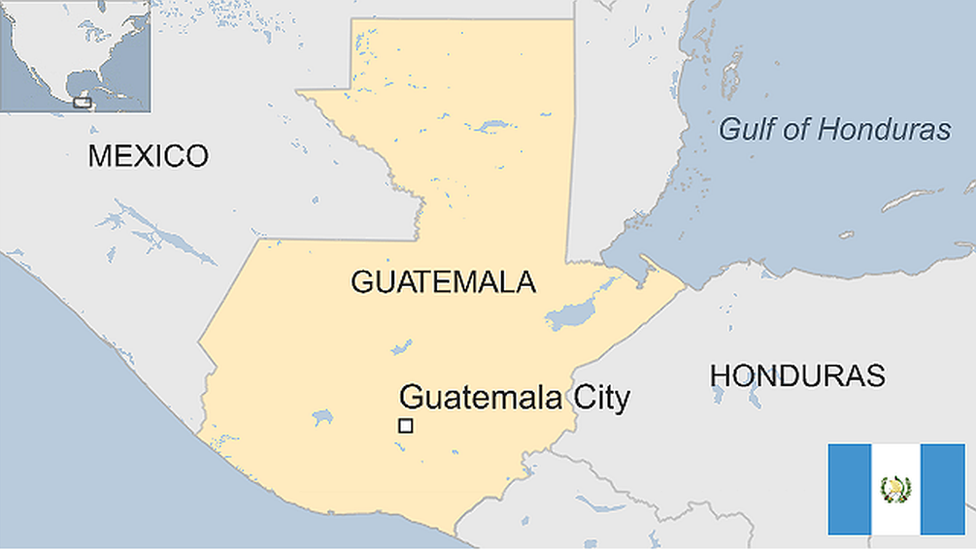Rios Montt trial: Fight over Guatemala genocide continues
- Published
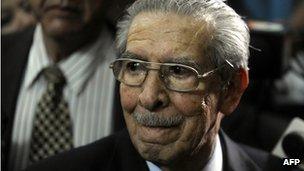
Efrain Rios Montt denies the charges of genocide and crimes against humanity
The headlines in the morning newspapers in Guatemala share one word in common: annulled.
They refer, of course, to the latest twist in the labyrinthine case of genocide against the country's most notorious military leader, Efrain Rios Montt.
The highest court in Guatemala has now overturned the historic judgement against the former president, who has spent just one day of his 80-year sentence in prison.
Similarly, the headlines all quote the same date: 19 April.
That is the day to which the case has now been re-set. Survivors and victims' families who gave testimonies after that day about the systematic rape, starvation and forced displacement of their villages now face having to return to court to deliver their evidence again.
Dismissal 'expected'
At times the Rios Montt trial seems almost too convoluted and complex to fully understand without a doctorate in Guatemalan law. And even then, it is far from simple.
But in essence, the sentence has been annulled over a dispute between two judges.
A judge from an earlier stage in the proceedings, Patricia Flores, ordered the trial suspended over what she said were unconstitutional procedural errors made in the evidentiary phase.
When the head of the three-judge tribunal hearing the case, Jazmin Barrios, pressed on regardless, Mr Rios Montt's lawyer accused her of bias for which he was thrown out of court.
The half-day which the former leader spent without a lawyer by his side may have put the prosecution's entire case in jeopardy.
Dozens of witness statements must be reheard, the concluding arguments remade and a new sentence reached, the court has ordered.
Needless to say, Mr Rios Montt's defence team are also pushing for the judges to be dismissed and for new judges to be installed.
"This was to be expected," Edwin Canil told me with resignation. Mr Canil is a survivor of a brutal massacre of an Ixil indigenous community by the army during Mr Rios Montt's time in power.

Judge Jazmin Barrios was involved in a dispute over alleged procedural errors
With tears in his eyes, he told us of the slaughter of almost his entire family in 1983, of being forced to live in refugee camps in the Mexican state of Chiapas and of the dawning realisation when he went to university years later that it had not been the actions of small renegade groups of soldiers but rather a state policy to destroy his people.
He subsequently dedicated his life to working with one of the main human rights organisations, the Centre for Human Rights Legal Action (CALDH), to bring the charges of genocide and crimes against humanity against Mr Rios Montt.
"I told people recently that [the guilty sentence] wasn't the end of this, but only the start."
Legal question marks
For Mr Rios Montt's lawyer, Francisco Garcia Gudiel - the man who was thrown from the courtroom last month and whose absence gave the grounds to overturn the sentence - the constitutional court's decision was "justice".
"There were a series of deficiencies and violations in the process" against his client, he told the BBC earlier this week, and he repeated his claim that the lead judge was biased against him.
"What does it mean when a judge is hugging [Mr Rios Montt's opponents] after the sentence was passed, as if to say, 'I have delivered what you wanted'?" he asked rhetorically.
Mr Garcia Gudiel strongly believes the case against Mr Rios Montt will "fall of its own accord", saying there were so many legal question marks over the process that it is not possible that the genocide sentence will stand in its current form.
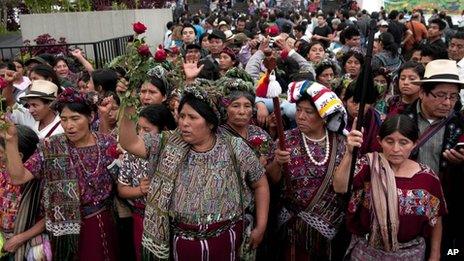
People from the Ixil community celebrated the guilty verdict on 10 May
His critics accuse him of trying every legal trick in the book to block the case, put obstacles in the way of the judicial process and keep the 86-year-old former military leader out of jail.
For now, he has certainly achieved that final aim. A day after he was sentenced, Mr Rios Montt was transferred to a military hospital after fainting. His lawyer disputes the suggestion that it was an act.
"He is very unwell. He has a serious heart condition, suffers from hypertension, problems with his prostate and problems in five of his vertebrae which make it difficult to remain seated for long periods of time. He legs are asleep constantly."
Nevertheless, he insists his client is ready for the legal fight ahead.
So, it seems, are the victims.
"We knew they would do this, and after this they'll enter an appeal, and then another and so on," says massacre survivor, Edwin Canil.
"They haven't even begun to get politics involved," he says. He points to a law being proposed in parliament which would allow all prisoners aged 80 or over to serve their sentences at home.
"This has got a long way to go yet. It's just a question of who gets tired first: them or us. But we're still here and staying firm."
- Published21 May 2013
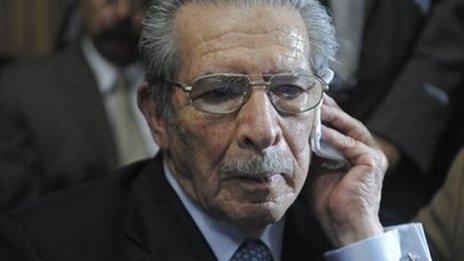
- Published2 April 2018
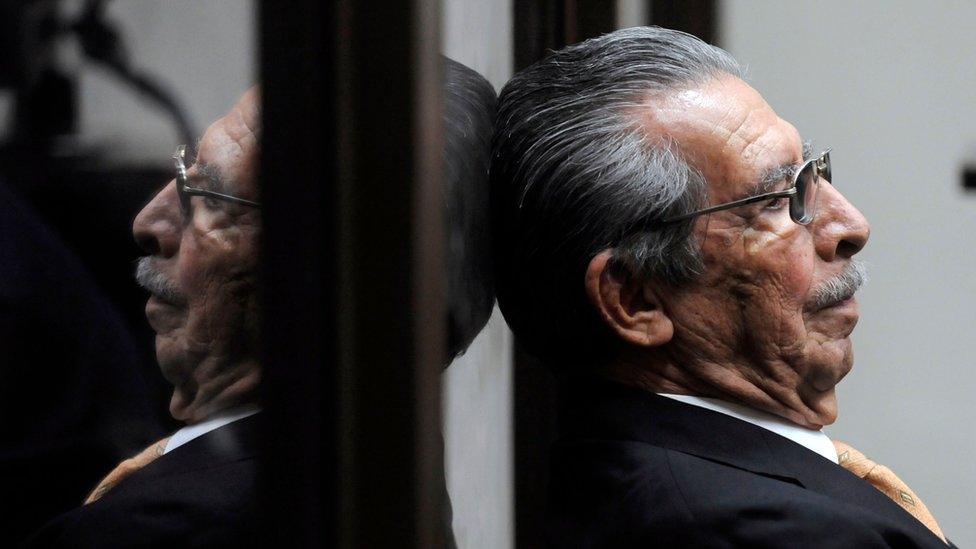
- Published24 April 2013
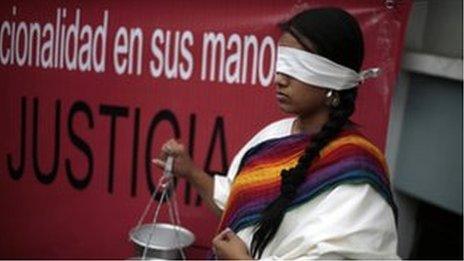
- Published13 March 2012
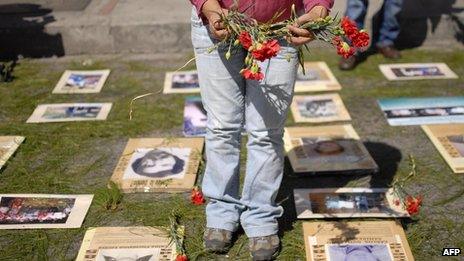
- Published15 January 2024
